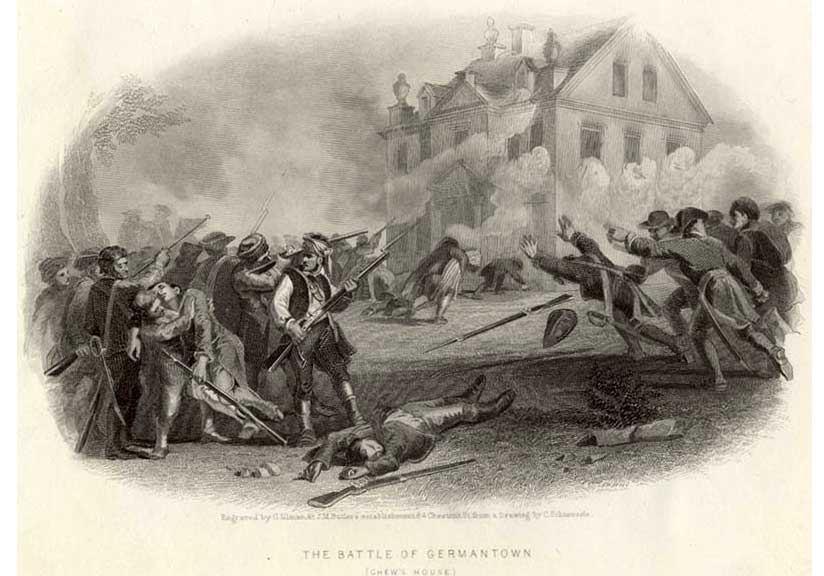Battle of Germantown 1777

After Howe had occupied Philadelphia, Washington attacked British troops at Germantown. The Americans planned a four pronged attack. The morning was foggy, and American coordination broke down. As a result, the attack failed, and the American troops were forced to withdraw.
.
On September 22nd 1777, British General Howe outflanked Washington, and made his way into Philadelphia. Washington hoped to turn the momentum, and repeating his victory in Trenton, by mounting a successful counterattack. Howe had divided his forces, half occupying Philadelphia, and the balance in the small town of Germantown. Washington wished to attack Germantown, since his forces outnumbered the 8,000 British soldiers bivouacked in the town.
Washington devised an intricate plan that had American forces converging simultaneously on the town from four sides. Starting at nightfall on October 3rd, four separate columns departed for Germantown, all scheduled to arrive at 6AM. Unfortunately, only one group, the one that included Washington, arrived on time. The initial assault went well, with the British being tactically surprised (even though they were aware that the Continentals were up to something).
Unfortunately, the town was covered by thick fog, making any coordination between forces very difficult. Furthermore, a brigade spent an hour trying to assault the Chew House, where a group of Hessian soldiers were barricaded inside. Before long, the tide of the battle began to turn against the Americans. Two of the four groups of assaulting soldiers failed to arrive on the battlefield. The lack of coordination along with the fog, resulted in one group of American soldiers firing on another. This lead to total confusion on the battlefield. The American attack petered out three hours after it began. The Americans lost 1,200 soldiers, while the British lost 500 men. This was a clear British victory.
 >
>